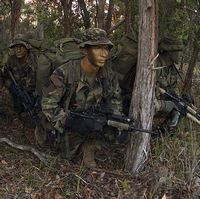MANILA, Philippines -- Whoever wins the Philippines' upcoming presidential election on May 10, it is likely that the special ties that bind the country to the U.S. will remain largely unaffected. In Manila, however, those ties are considered a necessity, not a choice, and some perceptible changes in attitude have emerged. The shift is aided by China's inroads into what has historically been considered "the United States' backyard."
Segments of Filipino civil society have long opposed what they perceive as Washington's interference in the country's internal affairs, as well as the U.S. military's presence during lengthy training exercises. Politicians, including the major presidential candidates, have been more restrained. But there has been a trend toward a more-independent and assertive stance regarding the country's sovereignty and self-interest, and hints of frustration have bubbled to the surface.
The U.S. remains the dominant political, economic and cultural influence in the Philippines, as well as being Manila's vital military ally. The Filipino military, the weakest in the East Asia region, needs the U.S. to both fight the Abu Sayyaf -- a small, violent, faction-ridden Muslim group that operates in western Mindanao -- and to guarantee a level of external security. Although Manila does not face immediate external threats, lingering concerns over a dispute with China over the Spratly Islands are mitigated by the 1951 Mutual Defense Treaty signed with the U.S.

